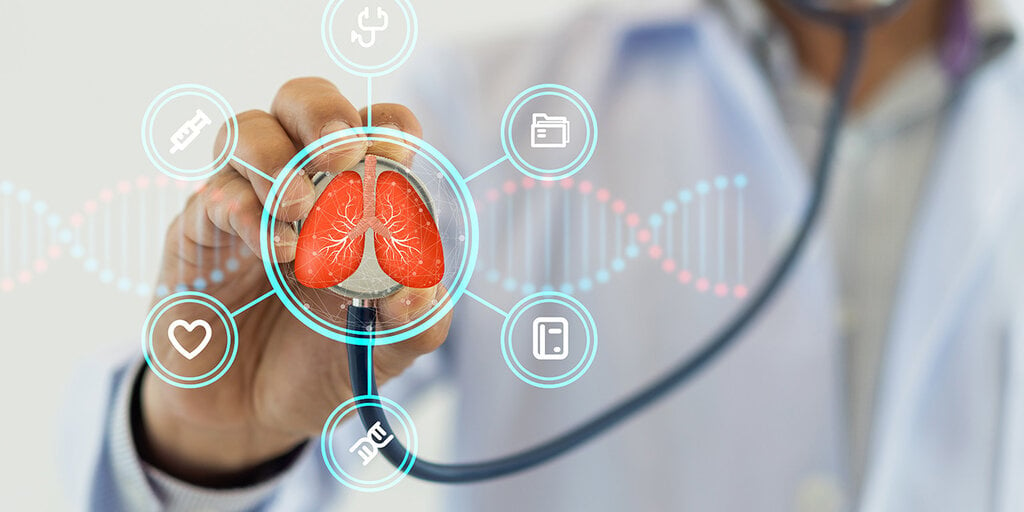In brief
- Health experts say how you age matters more than simply how long you’ve been alive.
- Biological age tracks your body’s function—not just your chronological age since your birth.
- AI-powered apps now estimate and aim to reverse biological age.
What if you could slow—or even reverse—the way your body ages? A new wave of health-tech startups, powered by artificial intelligence and cutting-edge medical research, is making it possible to measure not just how many years you’ve lived but also how well your body is actually aging.
The concept of “biological age” isn’t new, but it’s increasingly gaining traction among medical experts, who say it could transform how we approach preventive care, health optimization, and aging.
“That transition—from candle-counting to function-assessment—is significant. It allows us to care less about the number and more about how someone’s body is actually doing,” Dr. Bill Kapp, CEO of longevity research company Fountain Life, told Decrypt. “Two individuals can be 60 on paper but have significantly different risks for heart disease, memory loss, or recovery from illness.”
Kapp explained that focusing on biological age alters how healthcare providers practice preventive medicine.
“It’s not about waiting for problems but seeing early wear-and-tear and acting before things fall apart. That’s a smarter way to age,” he said. “It provides individuals with a better opportunity to stay strong and independent longer—regardless of what the calendar says.”
The concept of biological age is attributed to British physician Alex Comfort’s 1969 study, “Test-Battery to Measure Aging-Rate in Man.” Comfort’s study was groundbreaking because it introduced the notion of biological age as an alternative to chronological age for assessing how a person is aging.
Age is often seen as just a number—but not all numbers tell the same story. Chronological age is simply how many years you’ve been alive; biological age reflects how well—or poorly—your body is functioning relative to that number.
A person might be 40 years old on paper, but if their body operates like a 50-year-old, then this is their biological age. Because the body is closer to 50, the person could face elevated risks for age-related diseases such as cardiovascular issues, cancer, or cognitive decline. Conversely, a lower biological age could signal better health and a longer potential lifespan.
With longevity awareness becoming more of a focus in healthcare, a growing number of health-tech companies are developing tools to track and reverse biological aging. According to a December 2024 report by market research firm Precedence Research, the anti-aging industry is expected to reach $140 billion by 2034.
A growing market of apps
Unsurprisingly, the number of tools claiming to track or reverse biological age is growing, too. But which ones work—and how do you choose? According to Dr. David Cheishvili, chief innovation officer at EpiMedTech Global, biological aging isn’t something that can be measured with just one number, calling it a complex process that plays out across different systems in the body.
“There are a lot of biomarkers people talk about—telomeres, gene expression, metabolism— but in my view, DNA methylation-based epigenetic clocks are currently the most reliable when it comes to estimating biological age,” Cheishvili told Decrypt. “If a platform includes those and uses peer-reviewed, validated methods, that’s usually a good sign it’s grounded in solid science.”
Let’s break that down. DNA methylation-based epigenetic clocks estimate a person’s biological age by measuring chemical changes to their DNA that accumulate over time.
As the co-developer of the epiAge epigenetic age test, which analyzes DNA methylation data from saliva, Cheishvili pointed out red flags that consumers should watch out for when choosing a longevity app.
“The first thing to keep in mind is that these companies are selling something—and that’s fine, but it means you should be cautious,” he said. “If you see big claims about reversing aging with a supplement and there’s no scientific data or peer-reviewed research behind it, that’s a red flag. Real change takes time, consistency, and evidence—not magic pills.”
Another company looking to support the tracking of biological age is Rejuve AI. Launched in 2023, Rejuve AI is an AI-powered longevity research network co-founded by Jasmine Smith and Dr. Ben Goertzel, the founder of decentralized AI developer SingularityNET.
Earlier this month,, Rejuve AI launched “Longevity,” a mobile app that tracks several metrics, including weight, sleep, and diet. These metrics are combined to give users their biological age.
“Biological age is becoming something that we need to develop biomarkers for when we talk about measuring how much we’ve improved or reversed aging,” Smith told Decrypt.
Rejuve.AI’s recently launched Longevity app is part of a broader decentralized science movement that uses wearable integrations, health data, and artificial intelligence to estimate and help reduce users’ biological ages.
Smith noted that interest in health and longevity is growing every year, driven by high-profile moments like the release of Bryan Johnson’s Netflix documentary “Don’t Die,” and the popularity of concepts like Blue Zones.
“Initiatives like Make America Healthy Again are also pushing conversations about food quality and long-standing health concerns into the spotlight,” she said. “At the same time, personalized and preventative care is gaining traction—even in mainstream medicine, where more clinicians are embracing holistic approaches. It’s an exciting time to be part of this shift.”
A number of other platforms also help track biological age and offer insights into aging. InsideTracker’s InnerAge 2.0 uses blood biomarkers to estimate age and give personalized health tips. AgelessRx’s Biological Age Calculator analyzes lifestyle and lab data to suggest anti-aging strategies. Elysium Health’s Index measures DNA methylation to provide precise epigenetic age estimates.
AI meets longevity science
Experts highlighted that artificial intelligence is one of the most promising tools transforming longevity science right now.
“I’m actually pretty excited about how AI is being used in this space. It’s giving us new ways to analyze complex data and spot patterns we wouldn’t catch otherwise,” Cheishvili said. “For researchers working in aging, AI feels a bit like what calculators were to mathematicians—it doesn’t do the thinking for you, but it makes the work so much faster and more powerful.”
Building on that potential, Dr. Helen Messier, chief medical and science officer at Fountain Life, said AI is already making meaningful progress in health and longevity. Still, she noted, the technology faces limitations that require careful consideration as it evolves.
“Ethically, there’s a growing need to ensure this data isn’t misused by insurers or employers,” Messier. “As this space evolves, we have to treat biological age like any other sensitive medical data—with privacy, consent, and equity in mind.”
Generally Intelligent Newsletter
A weekly AI journey narrated by Gen, a generative AI model.



